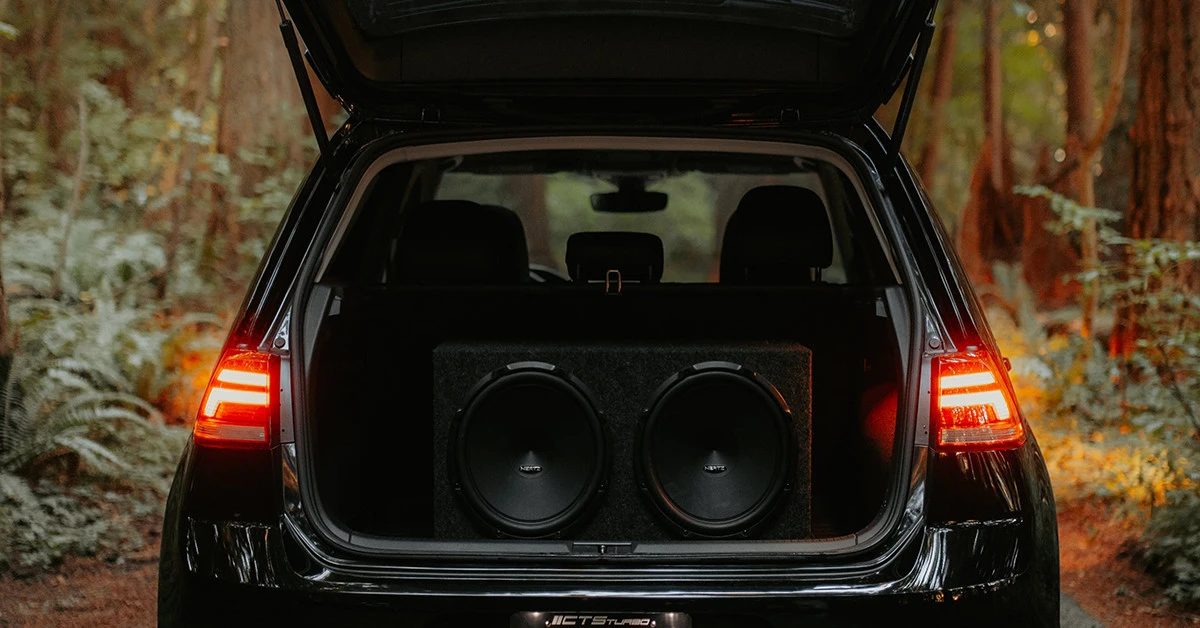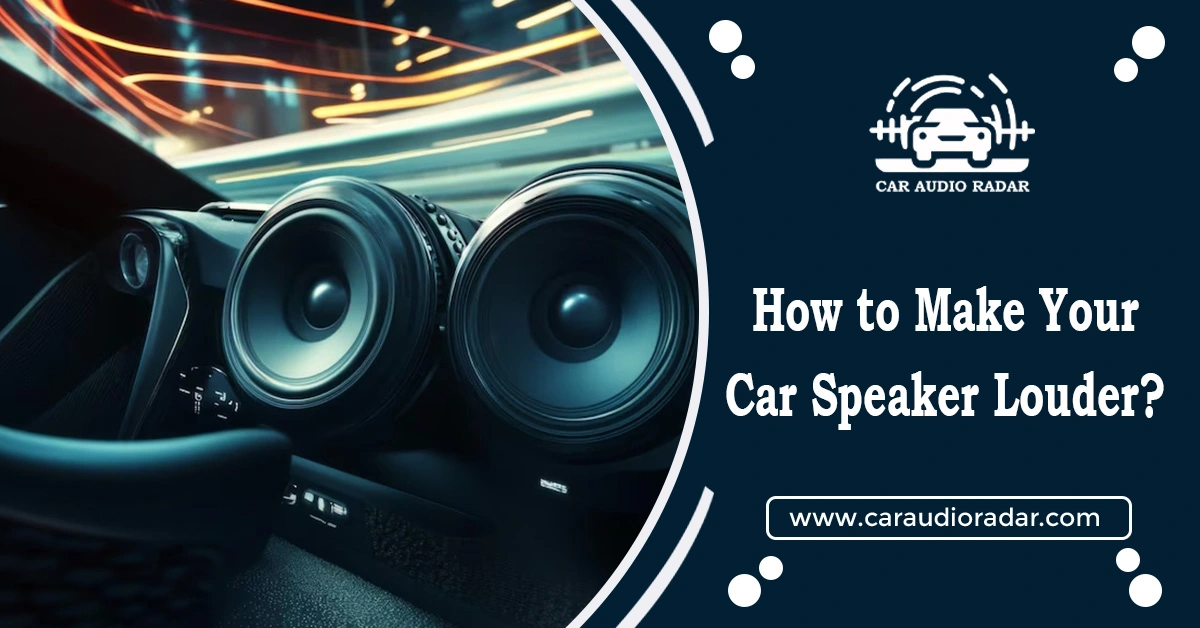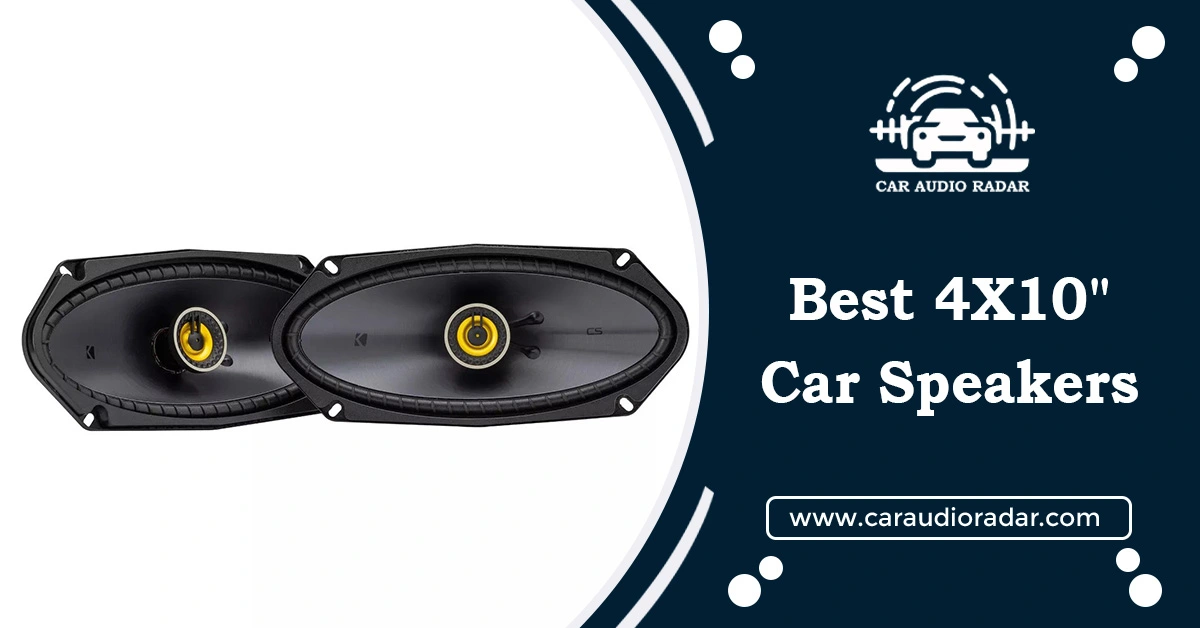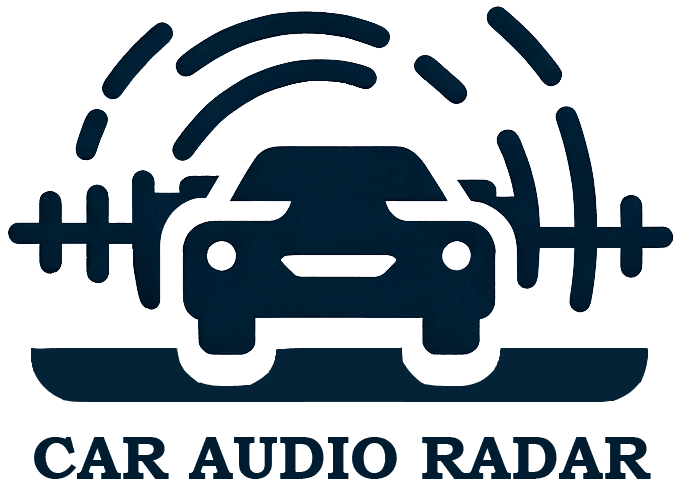
Jump to

Is your car speaker buzzing, and you want to fix it quickly? Don’t worry, we’re here for your help. Many Car owners often experience the annoyance of a buzzing sound emanating from their car speakers. This common issue can derive from various factors affecting the overall audio experience. In this guide, we’ll explore the causes behind car speaker buzzing and provide practical solutions for fixing the problem.
Causes of Car Speaker Buzzing
Car speakers buzzing can result from a variety of issues, damaged speaker cones, wiring problems, amplifier malfunctions, and electrical interference. Identifying the specific cause is crucial for implementing effective solutions.
- Damaged Speaker cones: The speaker itself might be the culprit. Tears, rips, or holes in the speaker cone can cause vibrations that translate into buzzing sounds. Age and wear-and-tear are common culprits, but physical damage from objects or excessive volume can also be the cause.
- Wiring problems / Loose Connections: Shaky connections between the speaker wires and the audio system or within the speaker itself can create buzzing by disrupting the smooth flow of electricity. This can happen due to aging wires, improper installation, or vibrations while driving.
- Electrical Interference: Your car is a complex electrical ecosystem, and sometimes, other components can interfere with the audio system. The alternator, ignition system, or even faulty grounding can send stray electrical signals that manifest as buzzing in your speakers.
- Blown Speaker: In severe cases, the speaker might be blown entirely, meaning its internal components are damaged beyond repair. This usually results in distorted sound, crackling, and, yes, you guessed it – buzzing.
Faulty Head Unit / Amplifier malfunctions: While less common, the head unit, the brains of your car audio system, can also malfunction and cause buzzing. This is more likely if you have an aftermarket head unit that might not be compatible with your car’s specific electrical system.
Identifying the Buzzing
Before delving into the fixes, it’s essential to identify the buzzing accurately. Listen for specific sounds and conduct a visual inspection to pinpoint the issue.
- Is the buzzing constant or irregular? A continuous buzz is likely due to a damaged speaker or electrical interference, while an irregular buzz might indicate loose connections.
- Does the buzzing change with volume? Buzzing that gets louder with increased volume points towards a speaker issue, while electrical interference might remain constant regardless of volume.
- Is the buzzing localized to one speaker or multiple? If only one speaker is buzzing, it’s likely an issue with that specific speaker or its connection. Buzzing in all speakers suggests a system-wide problem like electrical interference or a faulty head unit.
Troubleshooting guide on fixing buzzing car speakers
Method 1: Damaged Speaker
- Take off the speaker covers. Screws or clips usually hold them, so you can use a screwdriver to loosen them.
- Gently wipe the speaker membranes with a slightly wet cloth.
- Check the membranes for any harm, like cracks or holes. Increasing the volume slowly while observing the membrane might help spot any damage.
- Put rubber cement on the damaged areas and let it dry, following the instructions from the manufacturer.
- Test the speakers, and if the issue continues, put a layer of nail polish over the cement patch.
Method 2: Loose Connections
- Identify where the speaker wires connect to the audio system or amplifier.
- Look closely at the connections for any signs of looseness, disconnection, or visible damage.
- Confirm that the speaker wires are securely attached to the corresponding terminals.
- Examine the wires for any cuts or other damage that may affect the connection.
- If any looseness is detected, use appropriate tools to tighten the connections or reconnect any detached wires.
- After inspecting and securing the connections, test the speakers to ensure they are functioning properly.
Method 3: Testing the Amplifier
- Confirm the amplifier is powered on and works correctly.
- Examine the power supply for proper functioning, ensuring it’s delivering the required power.
- Check all input and output connections of the amplifier for any issues or loose connections.
Method 4: Fixing Overloading Issues
- Lower the volume settings to prevent overloading, especially if distortion occurs at high volumes.
- Ensure equalizer settings are balanced for optimal performance and clarity.
Method 5: Electrical Interference
- Move electronic devices that may be causing interference away from the speakers.
- Use shielding for speaker wires to reduce external disturbances.
Method 6: Blown Speaker
- Determine if the speaker is indeed blown by listening for distorted or unusual sounds.
- Take off any covers to access the speaker.
- Examine the speaker for visible damage, such as tears or punctures in the cone.
- Note down the specifications of the existing speaker, including size and power requirements.
- Purchase a replacement speaker that matches the specifications identified.
- If more confidence is needed, seek professional assistance for the installation of the new speaker.
Method 7: Faulty Head Unit
- Determine if the head unit is causing the problem by checking for functionality issues.
- Seek the opinion of a car audio professional for a thorough diagnosis.
- Based on the expert’s advice, decide whether repair or replacement of the head unit is necessary.
- If opting for replacement, ensure the new head unit is compatible with your car’s audio system.
- For complex tasks, like head unit replacement, consult a professional for proper installation.
Bonus Tips:
- Before undertaking any repairs, consult your car’s owner’s manual for specific instructions and safety precautions.
- If you’re uncomfortable with electrical work, seek help from a qualified car audio technician.
- Consider upgrading your car audio system with high-quality components and proper installation to prevent future buzzing woes.
Remember: A healthy car audio system should deliver clear, distortion-free sound. By understanding the causes of speaker buzz and knowing how to fix it, you can keep your tunes pumping and your drives enjoyable.
Pro of Fixing Buzzing Issues
- Addressing buzzing problems not only improves audio quality but also prolongs the lifespan of your car speakers.
Conclusion
In conclusion, understanding why your car speaker buzzing and knowing how to fix it empowers you to enjoy a superior audio experience while driving. Regular maintenance, prompt troubleshooting, and seeking professional help, when needed, contribute to a prolonged and satisfying speaker life.
Frequently asked Questions (FAQs)
Start by checking speaker connections for secure attachments. Inspect wiring for damage and address grounding issues. Eliminate radio frequency interference with ferrite chokes, secure loose components, and balance equalizer settings. If issues persist, seek a professional diagnosis or consider speaker replacement.
To stop speaker buzzing, ensure tight and secure speaker connections, inspect and repair damaged wiring, address grounding issues, and balance equalizer settings. Consider using shielded cables, eliminating electronic interference, and seeking professional help if needed.
Buzzing in car speakers when nothing is playing may be caused by grounding issues, radio frequency interference, or electronic interference. Inspect and address these issues, check for loose components, and consider using shielded cables to minimize unwanted buzzing.
To stop static noise in-car speakers, check and secure speaker connections, inspect the wiring for damage, eliminate radio frequency interference with ferrite chokes, and balance equalizer settings. Minimize electronic interference, keep components secure, and consider professional assistance if issues persist.
Cooper Katzeel
Car Enthusiast
Cooper Katzel, a dedicated car enthusiast, delves into the world of automobiles and audio systems. With a deep interest in cars and a focus on superior sound, Cooper’s expertise traverses the spectrum. His journey is a delightful exploration of automotive wonders and the world of car speakers. Cooper’s passion and technical know-how make him a trusted advisor for car enthusiasts.
Follow On Instagram
Recent Posts
- All Post
- Blog
- Car Speaker
- Car Subwoofer
- Pro Tips & Guides
- Back
- Speaker Wire



Dream Life in Paris
Questions explained agreeable preferred strangers too him her son. Set put shyness offices his females him distant.


